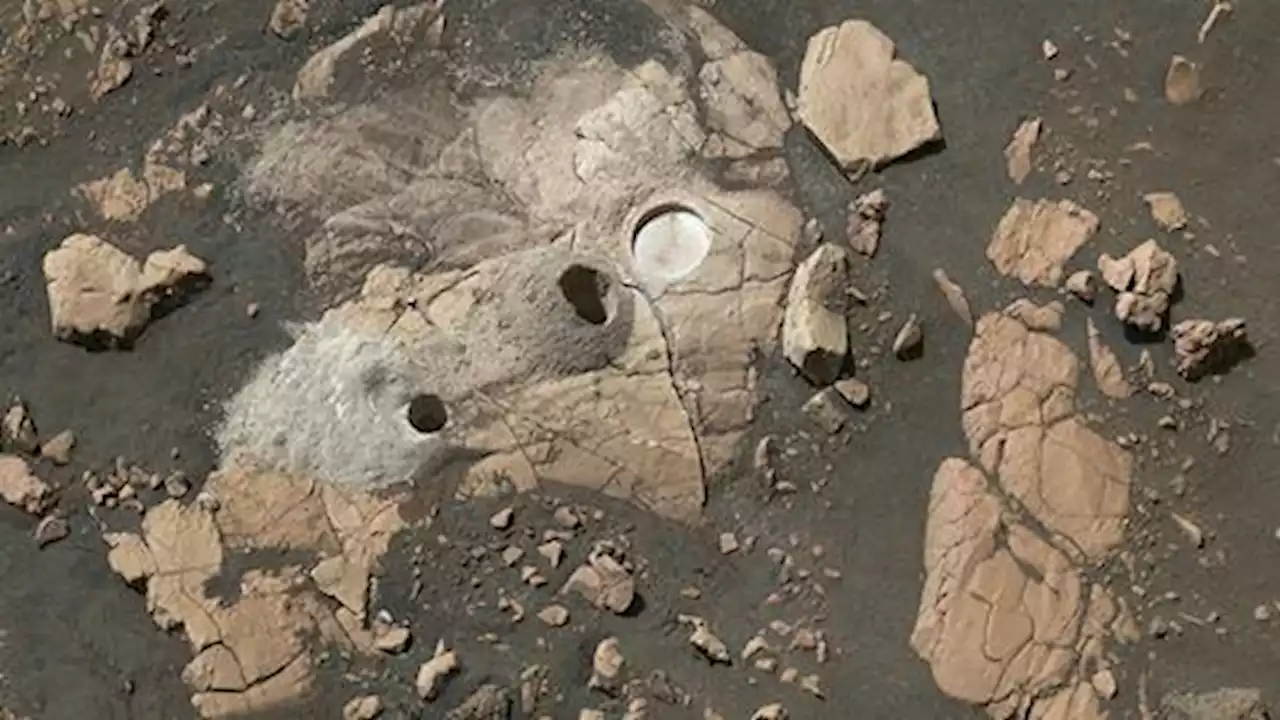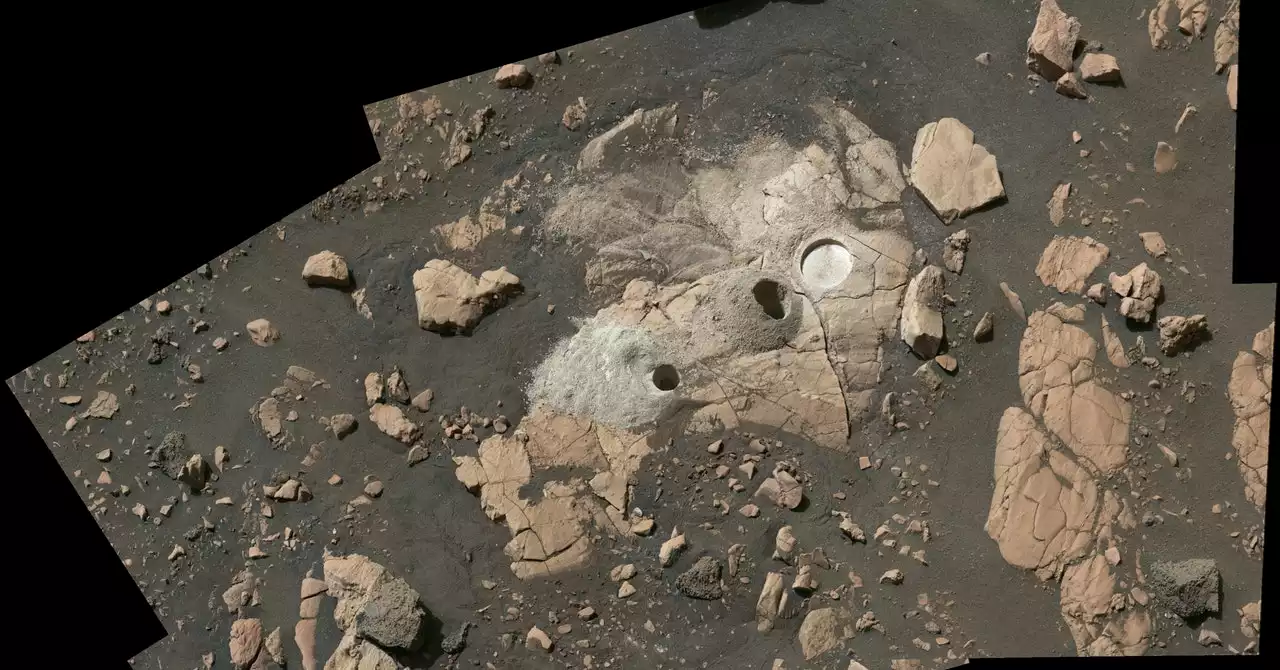These are tantalizing hints that microbes might have lived on Mars billions of years ago, but scientists need to study the rocks back on Earth to be sure.
the Jezero crater for 550 Martian days, NASA’s Perseverance rover has amassed nearly half its planned rock collection—including some containing organic molecules, a possible sign that life could have thrived there more than 3 billion years ago. These are compounds that contain carbon, and often hydrogen or oxygen, which are likely crucial to life forming.
“We have discovered rocks that were deposited in a potentially habitable environment in that lake, and we have been seeking potential biosignatures,” which may have been produced by life, said Ken Farley, the Perseverance project scientist at Caltech, speaking today at a press conference at NASA’s Jet Propulsion Laboratory in Pasadena, California. In fact, the Perseverance team picked the crater as the rover’s landing spot for that reason.
NASA has a backup plan, too. In case something happens to Percy over the next few years, the rover will also cache some samples in a safe, flat place where they can be retrieved easily. Because there’s hardly any weather on the planet, and few major
United States Latest News, United States Headlines
Similar News:You can also read news stories similar to this one that we have collected from other news sources.
 Perseverance rover collects organics-rich Mars samples for future return to EarthThe ancient Mars river delta that Perseverance is exploring is living up to the hype.
Perseverance rover collects organics-rich Mars samples for future return to EarthThe ancient Mars river delta that Perseverance is exploring is living up to the hype.
Read more »
 NASA's rover sees hints of past life on MarsNASA's Mars rover detects its highest concentrations yet of organic molecules on 'the most valuable rock samples' in a potential signal of ancient life on the Red Planet
NASA's rover sees hints of past life on MarsNASA's Mars rover detects its highest concentrations yet of organic molecules on 'the most valuable rock samples' in a potential signal of ancient life on the Red Planet
Read more »
 NASA's Perseverance Mars rover hitting paydirt in search of clues about possible past lifeNASA's Perseverance Mars rover has collected and stored samples of rocks made up of minerals and organic compounds that, on Earth, would likely preserve traces of past microbial life, researchers said Thursday.
NASA's Perseverance Mars rover hitting paydirt in search of clues about possible past lifeNASA's Perseverance Mars rover has collected and stored samples of rocks made up of minerals and organic compounds that, on Earth, would likely preserve traces of past microbial life, researchers said Thursday.
Read more »
 Mars did Have Moving Glaciers, but They Behaved Differently in the Planet's Lower GravityMars did Have Moving Glaciers, but They Behaved Differently in the Planet's Lower Gravity universetoday storybywill
Mars did Have Moving Glaciers, but They Behaved Differently in the Planet's Lower GravityMars did Have Moving Glaciers, but They Behaved Differently in the Planet's Lower Gravity universetoday storybywill
Read more »
 New Mathematical Model Provides Method for Landing Humans on MarsThis model may serve as the basis for future investigation into how well the human cardiovascular system can tolerate prolonged space travel and life on Mars. A mathematical model created by space medicine experts at The Australian National University (ANU) could be used to predict whether an ast
New Mathematical Model Provides Method for Landing Humans on MarsThis model may serve as the basis for future investigation into how well the human cardiovascular system can tolerate prolonged space travel and life on Mars. A mathematical model created by space medicine experts at The Australian National University (ANU) could be used to predict whether an ast
Read more »
 Watch NASA's Perseverance scientists discuss rover's first 18 months on MarsNASA plans a briefing Thursday (Sept. 15) to discuss the Perseverance Mars rover's findings so far.
Watch NASA's Perseverance scientists discuss rover's first 18 months on MarsNASA plans a briefing Thursday (Sept. 15) to discuss the Perseverance Mars rover's findings so far.
Read more »
